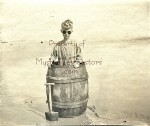World War II page 3
January 20, 1942: The German Wannsee Conference laid the foundations for the mass murder of the Jews. They also murdered other ethnic groups, gypsies, Polish intellectuals and some Soviet prisoners of war.
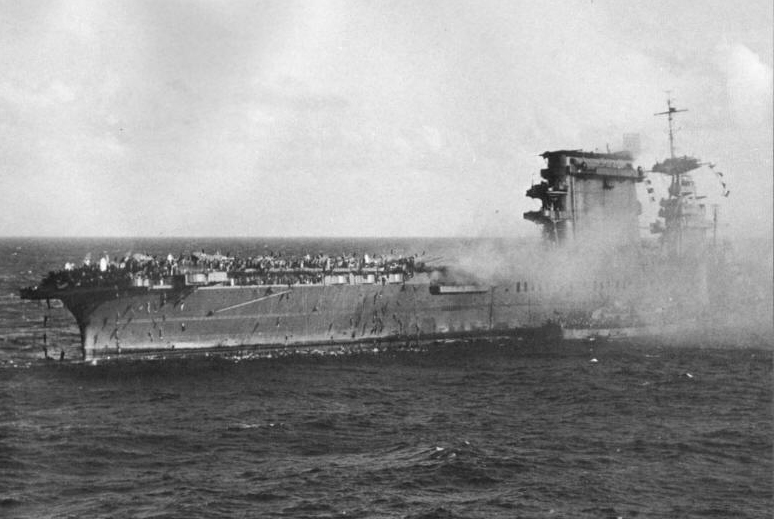
The crew of the USS Lexington abandon ship following torpedo strikes on May 9th,1942.
Note: This pic is a treasure! It is of the USS Lexington (the Lady Lex.) which was sunk during the Battle of Midway. America had always had a Lexington ship in their navy, and after the Lady was sunk, The USS LEXINGTON, CV 16, was built in 1943 and sent out to sea, after shakedown cruise.
It was called the “Blue Ghost”, and was reported sunk by the Japanese 5 different times!
My husband was a plank-owner and fought on the “Ghost” till the end of the war. At the Lexington reunions, we were fortunate to meet members who were on the first Lexington (shown above) and were picked up in the waters by the Battleship Yorktown. Mary Dell Jones.
*
February 1942: President Roosevelt signed an Executive Order 9066, which resulted in the relocation of 75,000 Americans of Japanese Ancestry and Japanese nationals into prison camps.
May 30, 1942: Ghetto dwellers without identity cards were rounded up on the Plac Zgody square. About 4,000 of them were sent to the Belzec death camp.
June 4, 1042: To meet the quota of deportees, SS storm troopers killed about 600 Jews on the streets of the Krakow ghetto.
June 4, 1942: The US Navy defeats the Japanese navy at the Battle of Midway.
 Battle of Midway 1942 Newspaper
Battle of Midway 1942 Newspaper
Spring 1942: By the spring of 1942 Six killing centers ( death camps) were established in Poland. These were Chelmno (Kulmhof), Belzec, Sobibor, Treblinka, Maidanek and Auschwitz.
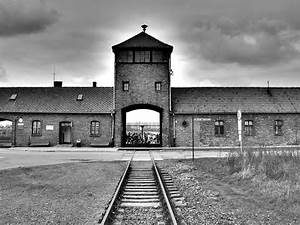 Auschwitz Concentration Camp,the largest of the German concentration camps.
Auschwitz Concentration Camp,the largest of the German concentration camps.
Some were slave labor camps, transit camps concentration camps and their subcamps and death camps. The major concentratin camps were; Ravensbruck, Neuengamme, Bergen-Belsen, Sachsenhausen, Gross-rosen, Buchenwald, Theresienstadt, Flossenburg, Natzweiler-Struthof, Dachau, Mauthausen, Stutthof, and Dora/Nordhausen.
July 10, 1942: The allies invade and take the island of Sicily.
July to September 1942: The Warsaw Ghetto Uprising. The Jews also revolted in the death camps of Sobibor, Treblinka and Auschwitz.
August 1942. Piotrkow, Poland: True story sent to me by Ben. ‘The Girl with the Apples’ A true story of survival from the Holocause and the Mysterious ways of God that drew people together here in America after their lives had touched in the dark days of Hitler.
The sky was gloomy that morning as we waited anxiously. All the men, women and children of Piotrkow’s Jewish ghetto had been herded into a square. Word had gotten around that we were being moved. My father had only recently died from tyhphus, which had run rampant through the crowded Ghetto. My greatest fear was that oour family would be separated. ‘Whatever you do’, my eldest brother, whispered to me. ‘don’t tell them your age. Say you’re sixteen’. I was tall for a boy of 11, so I could pull it off. That way I might be deemed valuable as a worker.
An SS man approached me, boots clicking against the cobblestones. He looked me up and down, and then asked my age. ‘Sixteen’, I said. He directed me to the left, where my three brothers and other healthy young men already stood. My mother was motioned to the right with the other women, children, sick and elderly people. I whispered to Isidore, ‘Why?’ He didn’t answer. I ran to Mama’s side and said I wanted to stay with her. No’, she said sternly. ‘Get away. Don’t be a nuisance. Go with your brothers.’ She had never spolen so harshly before. But I understood she was protecting me. She loved me somuch that, just this once, she pretended not to. It was the last I ever saw of her.
My brothers and I were transported in a cattle car to Germany. We arrived at the Buchenwald concentration camp one night later and were led into a crowded barrack. The next day, we were issued uniforms and identification numbers. ‘Don’t call me Herman anymore.’ I said to my brothers. ‘Call me 94983.’ I was put to work in the camp’s crematorium, loading the dead into a hand-cranked elevator. I too, felt dead. hardened, I had become a number. Soom my brothers and I were sent to Schlieben, one of Buchenwald’s sub-camps near Berlin.
One morning I thought I heard my mother’s voice. ‘Son,’ she said softly but clearly, I am going to send you an angel.’ Then I woke up. Just a dream. A beautiful dream. But in this place there could be no angels. There was only work and hunger and fear. a couple of days later, I was walking around the camp, around the barracks near the barbed wire fence where the guards could not easily see. I was alone. On the other side of the fence, I spotted someone; alittle girl with light almost luminous curls. She was half-hidden behind a birch tree. I glanced around tomake sure no one sawme. I called to here softly in German. ‘Do you have something to eat?’ She didn’t understand. I inchedcloser to the fence and repeated thequestion in Polish. She stepped forward. I was thin and gaunt, with rags wrapped around my feet, but the girl looked unafraid. In her eyes, I saw life. She pulled an apple from her woolen jacket and threw it over the fence. I grabbed the fruit and as I started to run away, I heard her say faintly, ‘I’ll see you tomorrow.’
I returned to the same spot by the fence at the same time every day. She was always there with something for me to eat – a hunk of bread or better yet an apple. We didn’t dare speak or linger. To be caught would mean death for us both. Ididn’t know anything about her, just a kind farm girl, except that she understood Polish. What was her name? Why was she risking her life for me? Hope was in such short supply, and this girl on the other side of the fence gave me some, as nourishing in it’s way as the bread and apples.
Nearly seven months later, my brothers and I were crammed into a coal car and shipped to Theresienstadt camp in Czechoslovakia. ‘Don’t return,’ I told the girl that day. ‘We’re leaving.’
I turned toward the barracks and didn’t look back, didn’t even say good-bye to the little girl whose name I’d never learned, the girl with the apples. We were in Thderesienstadt for three months. The war was winding down and Allied forces were closing in, yet my fate seemed sealed. On may 10, 1945, I was scheduled to die in the gas chamber at 10:00 AM. In the quiet of dawn, I tried to prepare myself. So many times death seemed ready to claim me, but somehow I’d survived. Now, it was over. I thought of my parents. At least, I thought, we will be reunited. But at 8a.m. there was a commotion. I heard shouts, and saw people running every which way through camp. I caught up with my brothers. Russian troops had liberated the camp! The gates swung open. Everyone was running, so I did too. Amazingly, all of my brothers had survived.
I’m not sure how. But I knew that girl with the apples had been the key to my survival. In a place where evil seemed triumphant, one person’s goodness had saved my life, had given me hope in a place where there was none. My mother had promised to send me an angel, and the angel had come.
Eventually I made my way to England where I was sponsored by a Jewish charity, put up in a hostel with other boys who had survived the Holocaust and trained in electronics. then I came to America, where my brother Sam had already moved. I served in the U. S. Army during the Korean War, and returned to New York City after two years. By august 1957, I’d opened my own electronics repair shop. I was starting to settle in.
One day my friend Sid who I knew from England called me. ‘I’ve got a date. She’s got a Polish friend. Let’s double date.’ A blind date? Nah, that wasn’t for me. but Sid kept pestering me, and few days later we headed up to the Bronx to pick up his date and her friend Roma. I had to admit, for a blind date this wasn’t so bad. Roma was a nurse at a Bronx hospital. She was kind and smart. Beautiful too with swirling brown curls and green, almond-shaped eyes that sparkled with life. The four of us drove out to Coney Island. Roma was easy to talk to, easy to be with. Turned out she was wary of blind dates too! We were both just doing our friends a favor. We took a stroll on the boardwalk, enjoying the salty Atlantic breeze, and then had dinner by the shore. I couldn’t remember having a better time. We piled back into Sid’s car, Roma and I sharing the backseat.
As European Jews who had survived the war, we were aware that much had been left unsaid between us. She broached the subject, ‘Where were you,’ she asked softly, ‘during the war?’ ‘The camps,’ I said. The terrible memories still vivid, the irreparable loss. I had tried to forget. But you can never forget. She nodded. ‘My family was hiding on a farm in Germany, not far from Berlin,’ she told me. ‘My father kew a priest, and he got us Aryan papers.’ I imagined how she must have suffered too, fear, a constant companion. And yet here we were both survivors, in a new world. ‘There was a camp next to the farm.’ Roma continued. ‘I saw a boy there and I would throw him apples every day.’ What an amazing coincidence that she had helped some other boy. ‘What did he look like? I asked. ‘He was tall, skinny and hungry. I must have seen him every day for six months.’ My heart was racing. I couldn’t believe it. This couldn’t be. ‘Did he tell you one day not to come back because he was leaving Schlieben?’ Roma looked at me in amazement. ‘Yes!’ ‘That was me!’
I was ready to burst with joy and awe, flooded with emotions. I couldn’t believe it! My angel. ‘I’m not letting you go.’ I said to Roma. And in the back of the car on that blind date, I proposed to her. I didn’t want to wait. ‘You’re crazy!’ she said. But she invited me to meet her parents for Shabbat dinner the following week. There was so much I looked forward to learning about Roma, but the most important things I always knew, her steadfastness, her goodness. For many months, in the worst of circumstances, she had come to the fence and given me hope. Now that I’d found her again, I could never let her go. That day, she said yes. And I kept my word. After nearly 50 years of marriage, two children and three grandchildren, I have never let her go.
Herman Roseblat of Miami Beach, Florida
This story is being made into a movie called ‘The Fence’.
*
October 28, 1942: Another 600 sick, old, little children and handicapped Jews were murdered. About 4,599 were shipped by train to the Belzec concentration camp.
November 1942: Nazis transferred Jewish laborers from the ghetto to Plaszow camp.
December 1942: German authorities carved the Krakow ghetto up into zone A for usable work force and zone B meant for the rest of the Jews.
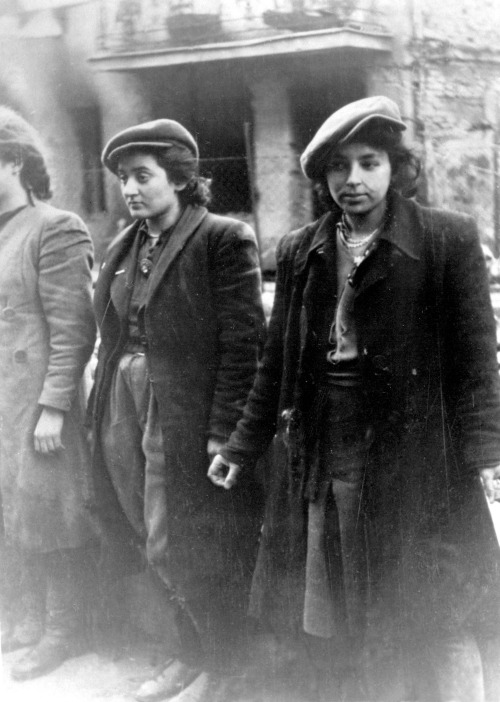
1943: Malka Zdrojewics on the right in the picture, was a Jewish resistance fighter. Hiding weapons in herr boots, she and others would go to a neutral place in the ghetto area and climb down into the underground sewers. During the uprising Malka would hurl Molotof cocktails at the Germans. Afterwards they went into hiding in an underground shelter, but the Germans found them and forced them out. Malka survived Majdanek camp and moved to Palestine in 1946, got married and had four children. What a woman. Source: Historical Times online.
Dear readers, if you have a story you would like to have included, you may contact me through the comment box below. Deanna
March 13, 1943: Ghetto A was closed down and all remaining Jewish workers were imprisoned in the Plaszow concentration came.
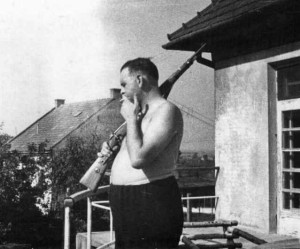
Amon Goeth, pictured on right, on the balcony of his house overlooking Plaszow labor camp. Poland 1943-1944. he murdered and tortured prisoners and is thought he killed over 500 Jews personally. He would sit outside his home with a rifle and use the Jews below for target practice. After the war Goeth went on trial and was found guilty of murdering tens of thousand people. He was executed near the site of Plaszow camp at the age of 37.
March 14, 1943: SS troops killed the Jewish inhabitants of ghetto B in their homes and in the streets. Several hundred were trucked to the Auschwitz camp in Oswiecim.
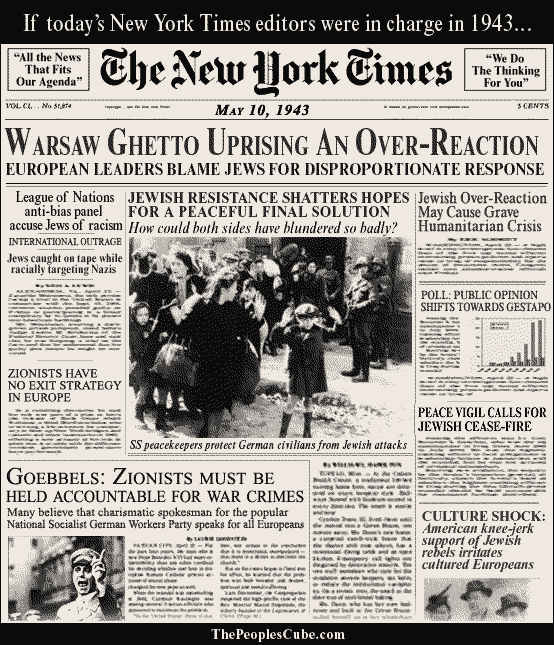
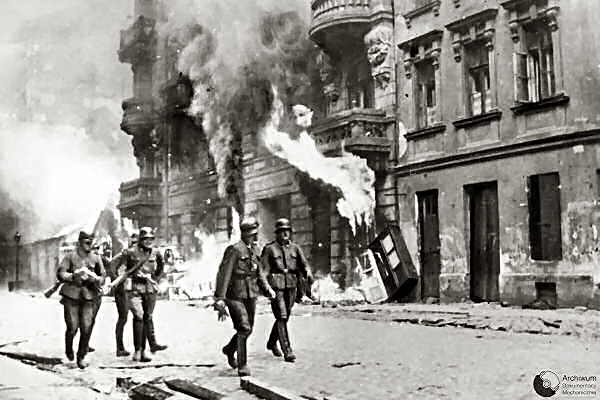 After the Warsaw Ghetto Uprising
After the Warsaw Ghetto Uprising
September 3, 1943: Italy surrenders to the Allies. Germany helps Mussolini to escape and set up a government in Northern Italy.
Continue
Previous

